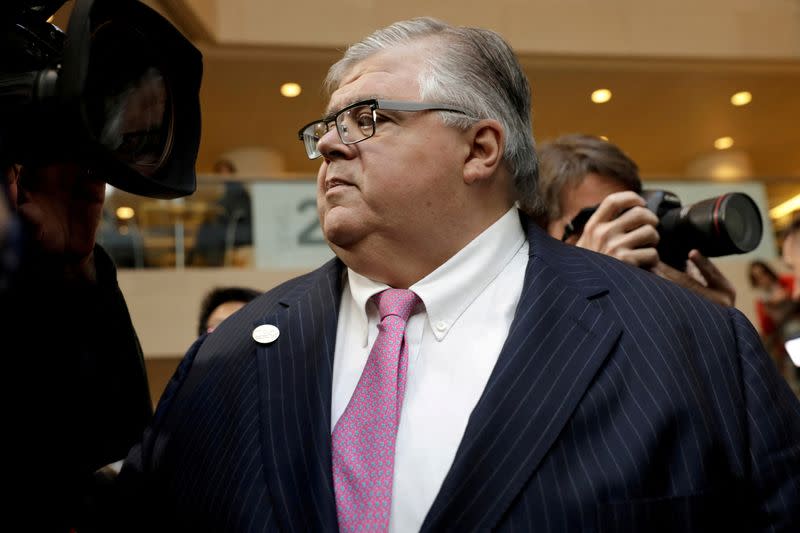BIS sends government debt warning before important elections

By Marc Jones
LONDON (Reuters) -The Bank for International Settlements warned on Sunday that rising government debt levels amid a number of major elections this year could roil global financial markets.
Dubbed the central bankers' central bank, the BIS said the world economy was on course for the "smooth landing" that many economists doubted when interest rates shot up, but said policymakers, especially politicians, needed to be careful.
Global government debt is already at record levels and elections ranging from the U.S. presidential vote in November, through recent polls in Mexico and South Africa, to votes in France and Britain in the coming week, all carry risks.
BIS General Manager Agustin Carstens said with interest rates not about to go back to ultra-low levels, and cost pressures from aging populations, climate change and rebuilding defence capabilities, economic stimulus plans and a general rise in protectionism could unsettle sensitive markets.
"They can surprise you with not much notice," Carstens told reporters as the BIS published its annual report, pointing to the turbulence in Britain's markets following then Prime Minister Liz Truss' budget plans which put some pension funds at risk of collapse. "You really want to avoid that."
As well as persistent concerns over U.S. debt levels, the French debt risk premium has surged this month to its highest level since the euro zone crisis in 2012, after French President Emmanuel Macron called a snap parliamentary election being held on Sunday that could bring in a far right government.
Carstens said the BIS was not calling out any "one or two" governments but that the message was clear.
"They (governments) must cut short the rise in public debt and accept that interest rates may not return to the pre-pandemic ultra low levels," he said. "We need a solid foundation to build upon".
MUCH BETTER PLACE
The positive, however, is that central banks are successfully reining in inflation that had hit decades-long highs after the COVID-19 pandemic, and then Russia's 2022 invasion of Ukraine, which riled commodity markets.
"Compared to last year, I have to say we are in a much better place," the former Mexican central bank governor said.
Although Carstens said central banks deserved praise for navigating a difficult path that could have resulted in a wave of recessions, he added they needed to persevere, likening the inflation fight to a course of antibiotics to tackle an illness.
He described an "extreme" scenario where inflation races up again and central banks need to raise rates further. But that is not what the BIS expects.
Some things will be key, however, including goods and services prices, which, relative to core goods, remain well below the pre-pandemic trend in many countries. Real wages relative to the cost of those goods and services have also lost ground during the surge in inflation.
"An overly rapid reversion of either – or both – of these relative prices could create material inflationary pressures", Carstens said, adding it would mean "fewer and more gradual rate cuts or even, in the extreme, rate increases."
It chimed with the view that rate cuts should not be rushed.
"A premature easing could reignite inflationary pressures and force a costly policy reversal," the BIS report said.
(Reporting by Marc Jones; Editing by Emelia Sithole-Matarise and David Holmes)

 Yahoo Finance
Yahoo Finance 